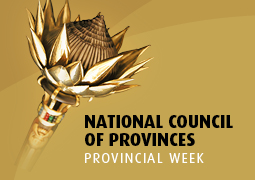
The scholar transport programme is one of the most effective government initiatives to alleviate poverty and continues to ensure that thousands of poor learners get access to education, writes Sakhile Mokoena.
In Mpumalanga, this programme targets mainly learners living in rural farm areas, who have to travel more than five kilometres to the nearest public school. In places that are inaccessible to buses, the Department of Public Works, Roads and Transport provides bicycles for the learner to either ride to school or to the nearest pick-up spot for the bus.
The scholar transport initiative has been identified as one of the focus areas for the National Council of Provinces’ Provincial Week, where Mpumalanga delegates to the NCOP will engage government departments and other stakeholders on the provision of safe and reliable scholar transport in rural areas, including mechanisms to control overloading, roadworthy vehicles, discrepancies between the number of learners and route distances, late transportation of learners, as well as fiscal wastages and corrupt practices in the provision of scholar transport.
Yesterday, the Mpumalanga delegation to the NCOP met with the provincial Department of Public Works, Roads and Transport, as well as scholar transport providers from the Nkomazi Local Municipality area.
The department reported that it is currently providing transport to over 64 000 learners in 364 schools across the province. Mr Phillip Nyoni, a Chief Director at the department, mentioned that the growth of new settlements far from schools is leading to an increase in the demand for scholar transport.
“Despite all plans that we have, new settlements are growing. Every month there are new dwellings in areas where there are no schools. Our duty is to monitor if there is a need and provide transport for the learners to attend school,” Mr Nyoni told the NCOP.
The scholar transport providers accused the department of unfair practices, including failure to pay for increases in the number of learners transported since the beginning of the contract.
Mr Solomon Shongwe, Chairperson of the Ehlanzeni Small Bus Operators, alleged that the department is also promoting corruption and overloading by awarding contracts to individual who do not own any vehicles. He claimed that the bulk of the province’s contracts for scholar transport are awarded to businesspeople from outside the province. He also alleged that government officials are illegally benefiting from the scheme.
The Leader of the Mpumalanga delegation in NCOP, Ms Audrey Maleka, said while the provision of scholar transport for poor rural learners is commendable, the programme must also empower local transport operators. “I think we must prioritise local people. It cannot be correct that the business side of the scholar transport programme only benefits foreigners and people from outside the province. That is not going to grow the local economy and the department must also look into allegations of government officials benefitting from the scheme,” Ms Maleka said.
The MEC for Public Works, Roads and Transport, Ms Mohita Latchminarain, acknowledged that her department is not doing enough to monitor if people outside the province are benefiting unfairly from the scholar transport business.
The delegation was also briefed by the provincial Department of Cooperative Governance and Traditional Affairs and the Nkomazi municipality about the provision of water and sanitation in the area. The NCOP delegates visited the Driekoppies Water Treatment plant, which is undergoing upgrades and is expected to address the challenges of water shortage in Nkomazi.

